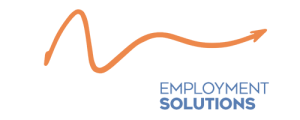Offices: Bryant • Helena • Russellville
The Importance of a Follow-Up After a Job Interview
After a job interview, you might think the hard part is over, but there's one final, crucial step you should take to remain a top candidate for the job: following up. Sending a follow-up message can make a lasting impression and potentially influence the hiring decision. It shows professionalism, reinforces your interest in the position, and gives you an opportunity to reiterate why you're the best fit. Let’s explore why a follow-up is so important after an interview and how to do it effectively!
1. Reinforces Your Interest in the Role
A follow-up email or message demonstrates your continued interest in the position. While you may have expressed enthusiasm during the interview, a follow-up ensures the hiring manager knows you are genuinely committed to the role.
Why It Matters:
- Employers appreciate proactive candidates. Taking the time to send a thoughtful follow-up shows that you're serious about the job and the company. It can help you stand out, especially in competitive hiring processes where candidates with similar qualifications are considered.
- It signals enthusiasm. Employers want to hire someone who is excited about the opportunity, and a follow-up email can reinforce that you’re eager to contribute to their team.
2. Keeps You Top of Mind
Hiring managers often interview multiple candidates over a short period. By sending a follow-up, you ensure they remember your interview and continue to consider you for the role.
Why It Matters:
- Interviews can blur together. Especially for roles with many applicants, hiring managers might struggle to recall every detail from each candidate. A timely follow-up helps keep you at the forefront of their minds.
- It highlights your professionalism. A well-crafted follow-up demonstrates attention to detail and shows that you’re organized, reliable, and courteous—qualities every employer values.
3. Provides an Opportunity to Address Unanswered Questions
Sometimes, after reflecting on an interview, you may realize you missed an opportunity to highlight a specific skill or experience, or perhaps the interviewer’s questions prompted new thoughts after the fact. A follow-up gives you a chance to address anything that wasn’t covered during the conversation.
Why It Matters:
- Clarifies important details. If you feel like there was something you didn’t explain thoroughly in the interview, a follow-up gives you the opportunity to elaborate or clarify. This can be particularly useful if there were technical questions or if you realized afterward that you forgot to mention a relevant experience.
- Provides additional insights. You can also use the follow-up to share any resources or examples that were discussed during the interview, such as a portfolio or links to projects you’ve worked on.
4. Demonstrates Good Communication Skills
Following up after an interview reflects positively on your communication skills. In most professional roles, effective communication is essential, and a follow-up email is a direct demonstration of that ability.
Why It Matters:
- Shows respect and professionalism. Communicating promptly and respectfully shows that you value the interviewer’s time and the opportunity they have offered.
- Establishes clear expectations. By following up, you can inquire about the next steps in the hiring process, which may give you a clearer timeline for the decision-making process.
5. Adds a Personal Touch
Sending a personalized follow-up message gives you a chance to show your appreciation for the opportunity to interview. Thanking the interviewer for their time and highlighting specific moments from your discussion can leave a lasting positive impression.
Why It Matters:
- Creates a connection. Mentioning specific topics from your interview, such as discussing the company’s values or specific job responsibilities, shows that you were fully engaged and that you value the interaction.
- Strengthens rapport. If you had a particularly positive interaction with the interviewer, the follow-up email can help solidify the professional relationship you began to build during the interview.
Tips for Writing an Effective Follow-Up Email
- Send it within 24 hours: Ideally, send your follow-up email within a day of the interview while your conversation is still fresh in the interviewer’s mind.
- Personalize the message: Mention specific aspects of your interview, such as a discussion topic, the company’s culture, or something the interviewer said that resonated with you.
- Express gratitude: Thank the interviewer for their time and the opportunity to discuss the role.
- Reiterate your interest: Clearly state your enthusiasm for the role and the company, and briefly summarize why you’re a strong fit.
- Keep it concise: Be respectful of the interviewer’s time by keeping the email short and to the point.
Following up after a job interview is more than a formality — it’s a strategic move that can reinforce your candidacy, demonstrate professionalism, and help you stand out in a competitive job market. By sending a thoughtful and timely follow-up email, you show that you’re truly invested in the position and eager to move forward in the hiring process. Don’t let the opportunity slip away; make the follow-up a key part of your interview strategy.

 Serving Bryant, Benton, Helena,
Serving Bryant, Benton, Helena,